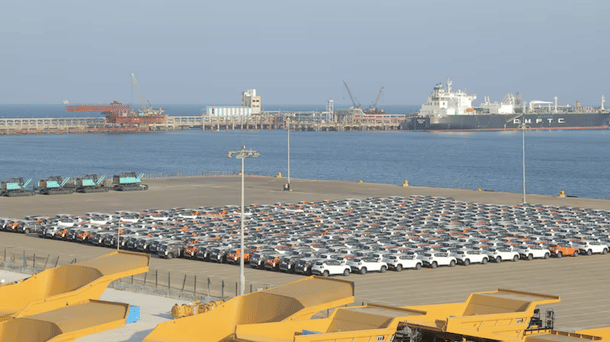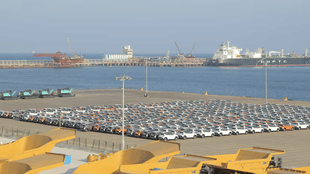Infrastructure
India-Made Citroen e-C3 EVs Roll Out For Global Markets, A First For Multinational Carmakers
Swarajya Staff
Apr 12, 2024, 02:16 PM | Updated 02:15 PM IST
Save & read from anywhere!
Bookmark stories for easy access on any device or the Swarajya app.


French carmaker Citroen became the first multinational car manufacturer in India to export its locally manufactured e-C3 electric vehicles (EVs) from the country to international markets.
The company on Thursday (11 April) announced that the first shipment of 500 units of the Made-in-India Citroen e-C3 to Indonesia was ceremonially flagged from Kamarajar Port.
According to the company, this move aligns with India's vision of producing sustainable EVs locally for the world and Citroen’s global ambitions of democratising electric mobility.
Aditya Jairaj, CEO & MD of Stellantis India, in a company statement, said, “India is not only a strategic market but also a major sourcing hub for vehicles, components, and mobility technologies within the Stellantis group. Commencing the export of the versatile ‘Made-In-India Citroen e-C3’ electric vehicle to international customers is a proud validation of our engineering and development capabilities.”
Lise Talbot Barré, Consul General of France in Pondicherry and Chennai, said, “This ‘Make in India’ Citroen e-C3 is a symbol of mutual commitment to deliver affordable clean mobility solutions in Indo-Pacific area".
Was pleased to attend at Kamarajar Port the Sea Shipment Flag-Off Event of ð«ð· carmaker #Citroën, the 1st "Make in India" electric vehicle exported by a multinational OEM. A symbol of ð®ð³ ð«ð· mutual commitment to deliver affordable clean mobility solutions in Indo-Pacific area pic.twitter.com/K90hTMqbap
— Lise Talbot Barré (@FranceinPondi) April 11, 2024
The e-C3, offers a 320 km range driving range on a single charge, along with 100 per cent DC fast charge and 15 AMP home charging options for convenience. It is available in 13 exterior colour combinations and 47 customisation options.
In addition to the e-C3, Citroen also began exporting the C3 to ASEAN and African markets last year. The company plans to have more than 75 battery electric vehicles, also called BEVs and reach global annual BEV sales of five million vehicles by 2030.





